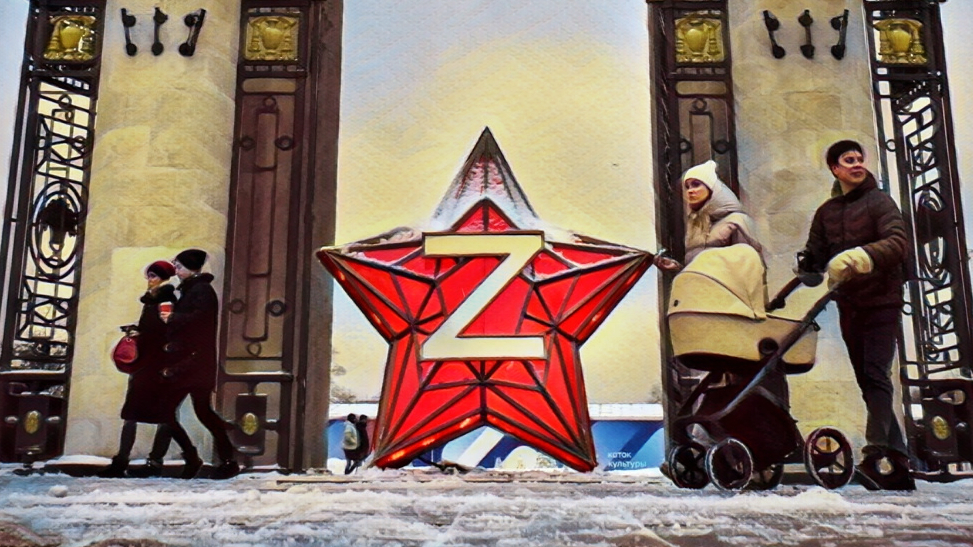Z-INTERN: Some Thoughts on the Global Conference on Multipolarity — 29 April 2023
Once upon a time long ago, but still within living memory, the world was divided into three. There was the First World, the Liberal West, the Second World, the Socialist East, and the Third World, which was what is now the Global South, then fought over between West and East. In those years of Cold War nuclear stand-off, direct armed competition over land and resources was limited to the Third World, where sponsored revolutions, violent coups, armed interventions and proxy wars ravaged Latin America, Africa, the Middle East and the Far East. But next to this South-localized, kinetic competition, there also took place a truly global, abstract competition: a worldwide one for hearts and minds. That abstract competition opposed Liberalism, where ‘freedom’ was defined by bourgeois-style nihilism and institutionalized usury, to Socialism, where ‘equality’ was defined by proletarian-style levelling and materialist determinism. In this competition, the West-Liberal and East-Socialist state-actor camps pragmatically aligned themselves according to an older and deeper divide: the former associated with religion and the latter with atheism, even although in essential nature – in contrast to the institutional representation – the true association was rather reversed. Accordingly, while the material (resource and infrastructure) balance was markedly tipped in favour of the former, the opposite was true for the immaterial (zeal and devotion) balance. Everybody who lived through some of the Cold War years knows that, despite its ‘free world’ rhetoric and professed righteousness, the Liberal West was built upon selfish materialism and cowardly comfort, and that, despite its suffocating totalitarianism and genocidal ruthlessness, the Socialist East was built upon selfless idealism and heroic sacrifice.
After the fall of the Berlin Wall in 1989 and the collapse of the Soviet Union in 1991, most people have forgotten – or wanted to forget – the unmeasured reservoirs of idealism and the uncounted lives of sacrifice that had been poured into the lost cause of Socialism. From the East, where millions of unnamed coal-miners, plant-workers and field-hands ‘warp speeded’ Soviet Russia into the industrial age, to the West, where millions of ordinary workers wrested basic rights and entitlements from bourgeois magnates through labour strikes, union contributions and election campaigns. From the Third World, where many millions died and suffered fighting off colonial rule, capitalist exploitation and imperialist intervention, to the Second World, where multiple millions fell by the wayside as casualties of various megalomaniac ‘great leap forward’ experiments in economic and social engineering. Nobody will ever accurately calculate the sum total of human lives wasted in pursuit of the failed promise of Socialism, including those of utterly selfless idealism and heroically sacrificial dedication. The time-warp ‘reservations’ of North Korea and Cuba – and the silent memory of a rapidly shrinking group of elderly people – aside, all that remains of that true-socialist world now are a few grass-grown memory stones, a few yellowed books and a few rarely screened cinematographic artworks. It is only with the greatest difficulty that young people can be made to understand what moved a Nicaraguan youngster to fight and die for a revolution (Carla’s Song, Ken Loach, 1996) or what inspired an Italian peasant to strike and suffer for an idea (Novecento, Bernardo Bertolucci, 1976), or what drove a Chilean poet to go into exile and wander around the world (Il Postino, Michael Radford, 1994). Or what moved a retired Dutch worker to put his nose into his monthly newspaper envelope from Moscow – to smell the air of dignity.
Once upon a time, for millions around the world, Moscow was the centre of the universe: a place where a better world was being planned – and built. Even if the building projects were done hastily, clumsily and unevenly, and even if the human builders were deeply flawed, at the very least Socialism professed ethical dimensions that the vast majority of humans on Earth could identify with, viz. the material uplifting of impoverished masses, social justice for downtrodden classes and peaceful coexistence between nations. Moscow was the nerve centre of that now long dead-and-buried Socialist life-world: there, from all over the world, students and researchers met to learn; scholars and journalists met to report; economists and engineers met to plan and ideologues and politicians met to decide. The same happened in many other Socialist capitals (it is worth mentioning ‘non-aligned’ Belgrade as another important node), where exchange studies, research institutes and professional conferences created the human network that, over many decades, managed to hold together the Socialist world project.
After the fall of the Soviet Union and the Socialist world project, after the conquest of the Second World by the First and during the three decades long ‘unipolar’ moment of neo-liberal hegemony, Moscow was reduced to just another destination on the treadmill of the globalist travel crowd: IMF bankers fighting against Russia’s economic self-sufficiency, NGO ideologues fighting against Russia’s family life, ‘human rights’ councillors fighting against Russia’s rule of law, media moguls fighting against Russia’s free press. Not to speak of those lesser globalist travellers, who are always quick to exploit the slightest chink in the armour of sovereign state borders: ‘investment bankers’ after Russia’s natural resources, ‘intelligence operatives’ after Russia’s military affairs and ‘model agents’ after Russia’s women. It took Russia three decades to shake off this globalist crowd – and it has just begun coping with the wounds inflicted during these three decades of globalist-imposed indignity. Removing the infiltrators, identifying the traitors and destroying the saboteurs will take time. But the tide has turned: for Russia, 22-02-2022 marks globalist-nihilism’s high-water mark. Slowly, the dark tide is retreating, leaving mountains of dead bodies and fields of wrecked equipment in its wake as it creeps back from the fields of Little Russia.
And this Spring of 2023, for the first time in three decades, Moscow found itself again in another way as well: as the centre of a world-changing idea. On 29 April 2023, Moscow was the digital centre node for the great Global Conference on Multipolarity, supported by the great Neo-Eurasianist movement led by Professor Aleksandr Dugin, attended by dozens of the world’s foremost Traditionalist thinkers and dissident publicists, and opened by Russian Foreign Minister Sergey Lavrov. Multipolarism, Eurasianism, Traditionalism – these are just some of the words used to describe this movement, for now. It is, should be and wants to be a movement that is, while infused with the self-same spirit of idealism and sacrifice that once gave early socialism its momentum, effectively lifted above the ‘ism’-ideologies that have plagued mankind over the last two centuries of materialist-determinist ‘planning’. The movement expressed by this Global Conference on Multipolarity, as all participants will attest to, is a truly forward-reaching movement, incomparably more progressive than anything liberalism can lay claim to. It aims at liberating all the peoples of the world from the globalist-nihilist yoke of ‘high finance’ usury (the globalist banking cartel), ‘rules-based-order’ transnationalism (the IMF-WEF-EU-NATO ‘letter institutions’) and liberal-normativist totalitarianism (the LGBT-Woke agenda). But this new world-changing movement also rests on solid ground: it has organically grown out of root-identities, traditional value-systems, as well as classic philosophical deliberation and deep historical insight. Thus, this time around, there is a new world-changing idea that is truly aligned with, and not artificially grafted upon, Russia: this movement, centred on the concept of Multipolarity, is truly aligned with Russia’s state sovereignty, national identity, cultural heritage and spiritual essence. Its true strength, however, is that it is compatible with all forms of authentic sovereignty, identity, culture and tradition – not just Russia’s. Russia, in accordance with its historical destiny as Third Rome and its geographical destiny as ruler of the Heartland of the World Island, is merely the centre of the multipolarity movement.
Once upon a time long ago, now almost out of living memory, Moscow was the centre of a world-changing movement as the seat of the worldwide socialist movement: from there, the Com-intern (or Third Communist International, 1919-43) haunted the world with the spectre of world revolution. Today, as confirmed by the Global Conference on Multipolarity, Moscow is once again the seat of a new and different world-changing movement, but with the same – or rather: more – true world-revolutionary potential. Its enemies may ignore, dismiss and malign it, but this movement will change – and is changing – the world. Ultimately, no amount of censorship, suppression and violence can halt the march of history. The tide of history has indisputably turned: the unipolar moment is over and globalist liberalism is destined for the dustbin of history. Z-intern salutes Nemesis.











Very interesting approach to this shift! thx!